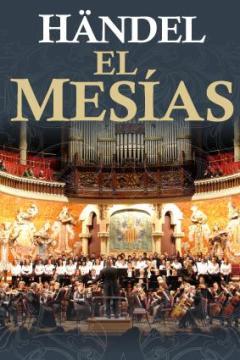Handel – Messiah HWV 56 (2015)
Handel – Messiah HWV 56 (2015)

1. Messiah, oratorio HWV 56 [2:31:08] Eleanor Dennis - soprano Carlos Mena - alto David Butt Philip - tenor David Soar - bass Amateur singers of "la Caixa” Foundation Participatory Concerts Cor de Cambra del Palau de la Música Orquestra de Cadaqués Joolz Gale - conductor Dec. 15, 2015, Palau de la Música Catalana (Barcelona, Spain)
Messiah, oratorio by German-born English composer George Frideric Handel, premiered in Dublin on April 13, 1742, at Easter rather than at Christmastime, when it is popularly played in the present day. A large-scale semidramatic work for chorus, soloists, and orchestra, it is the source of the familiar “"Hallelujah Chorus."” Messiah is by far the most frequently performed of all oratorios.
The verses used as text for Messiah were assembled by Handel’s friend Charles Jennens, a wealthy supporter of the arts. They were drawn from three parts of the Bible: Old Testament prophesies of the Messiah’s birth; New Testament stories of the birth of Christ, his death, and his resurrection; and verses relating ultimately to Judgment Day, with the final chorus text drawn from the Book of Revelation.
Messiah was a triumphant success at its Irish premiere, perhaps in part because the composer had been in town for most of the winter offering a concert series that attracted considerable attention to his music. The work found less favour in London until 1748, when a somewhat less conservative bishop of London was appointed. Anecdotes of the day suggest that it became a particular favourite of King George II, who had been Handel’s patron in Hannover before becoming king of England.
The oratorio’s “"Hallelujah Chorus"” occurs at the close of part two. Its instrumental support is unusually bold for the Baroque era. However, the musical structure combines the favoured techniques of the day, as the choral parts are sometimes blended in homophonic harmony (with chords supporting a single melody at a time) but just as frequently in polyphonic complexity (with simultaneous and equally important melodies). Its final pages build a fugue on the phrase “And he shall reign.”
Many of the choruses in the oratorio feature a similar blending of musical textures, with homophonic and polyphonic passages appearing in turn. Other familiar choruses include “"For Unto Us a Child Is Born"” (part one), “"All We Like Sheep"” (part two), and the concluding chorus of the entire work, “"Worthy Is the Lamb"” (part three).
Well-known solos include the festive “"Rejoice Greatly, O Daughter of Zion"” (part one) and the more-reflective “I Know that My Redeemer Liveth” (part three) for soprano, the alto’s joyful “"O Thou That Tellest Good Tidings to Zion"” (part one) and serene “"If God Be for Us"” (part three), the tenor’s exuberant “"Ev’ry Valley Shall Be Exalted"” (part one), and two boldly assertive arias for bass, “"Why Do the Nations so Furiously Rage"” (part two) and “"The Trumpet Shall Sound"” (part three).
Handel’s score calls for a typical Baroque orchestra of a few dozen players, largely strings and woodwinds, with only minimal brass and percussion, along with a small, though skillful, chorus. Not until after his death did immensely scaled performances become popular. As early as 1784, in a festival commemorating the composer’s centenary (a year premature, as it turns out), Westminster Abbey presented the oratorio with 60 sopranos, 48 countertenors, 83 tenors, 84 basses, 6 flutes, 26 oboes, 26 bassoons, 1 contrabassoon, 12 horns, 12 trumpets, 6 trombones, 157 strings, assorted percussion, and an organ. Some 19th-century performances brought thousands to the stage. --- Betsy Schwarm, britannica.com
download (mp3 @320 kbs):
oboom yandex 4shared mega mediafire cloudmailru uplea








